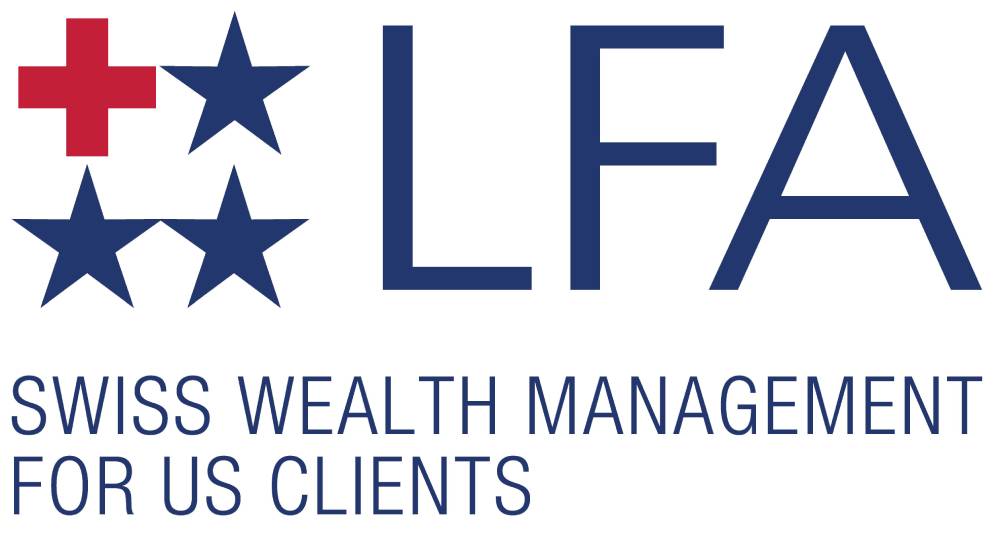You’ve likely heard the diversification mantra countless times if you have $1 million or more in investable assets. Yet for many affluent Americans, that “diversification” may primarily involve U.S.-based stocks, bonds, and sectors tied to the same currency and subject to the same political and economic conditions.
Based on your accumulated assets, it may be worth considering additional steps to help protect what you’ve worked so hard to build. Swiss franc investing may help hedge currency risk and contribute to a broader diversification approach by expanding beyond domestic markets, gaining exposure to relatively foreign currencies, and incorporating international investment advice and custody solutions.
Our article will explore commonly asked questions related to Swiss franc investing for U.S. investors:
- What is currency hedging?
- How can U.S. investors access Swiss franc investments?
- What are the potential benefits of Swiss franc investing and hedging risk?
- Are Swiss bank accounts safe and compliant for U.S. citizens?
- What are the risks involved in investing in Swiss francs?
- How does Swiss franc investing fit into global portfolio diversification?
As Swiss-based financial advisors, the LFA team specializes in working with U.S. citizens who want to are looking to explore their portfolio diversification by investing in Swiss francs.
What is currency hedging?
As a U.S.-based investor seeking effective diversification, looking beyond domestic markets and considering how currency exposure impacts your wealth it may be prudent. While the U.S. dollar remains the world’s primary reserve currency, it faces ongoing pressures: a national debt approaching $40 trillion, ongoing fiscal deficits, political uncertainty, rising geopolitical tensions, and inflation that may gradually affect purchasing power over time.
Looking toward 2025, the dollar’s trajectory remains uncertain. Some analysts see potential for stabilization or modest gains fueled by relative U.S. growth. In contrast, others anticipate weakness tied to tariffs, mounting debt, and expected rate cuts, with some projections estimating 9–10% declines against the yen or euro. With so many variables in play, including Federal Reserve policy, currency movements may influence the real value of your portfolio.
That’s why thoughtful currency hedging may play an important role in helping to protect and strengthening your global investment strategy.
A currency hedge is a strategy used to help manage the risk of losses caused by fluctuations in exchange rates. When you own assets in a foreign currency, such as Swiss francs, changes in the value of that currency relative to the U.S. dollar can either boost or reduce your returns when converted back into dollars. A currency hedge is a financial “offset” to reduce or eliminate that impact.
How can U.S. investors access Swiss franc investments?
Here’s how it works:
- If you expect a foreign currency to weaken against the dollar, you can use tools like forward contracts, futures, options, or currency-hedged funds to lock in an exchange rate or counterbalance the potential loss.
- If the foreign currency moves as you anticipated, the hedge may gain value, potentially offsetting losses from currency movement.
- If the currency moves in your favor, the hedge may reduce your gains—but it provides stability by smoothing out unpredictable swings.
Here are three practical examples of how you could utilize Swiss francs for hedging purposes:
1. Forward Contracts: If you own CHF-denominated bonds or a Swiss bank account, you may enter into a forward contract with a bank or brokerage to lock in today’s USD/CHF exchange rate for a future date.
- Example: You agree today to exchange CHF 1 million for U.S. dollars in 12 months at a fixed rate.
- Benefit: Even if the franc weakens, you will know in advance approximately how many dollars you’ll receive when you convert, avoiding surprises.
2. Currency-Hedged ETFs: If you invest in Swiss equities or bonds via ETFs, you can choose currency-hedged versions of those funds.
- Example: Instead of buying an unhedged Swiss equity ETF, you might select one that uses currency futures to offset franc movements.
- Benefit: Your returns may more closely reflect the performance of Swiss stocks, not fluctuations between the franc and the dollar.
3. Options on Currency Futures: Using put options on CHF futures gives you the right, but not the obligation, to sell Swiss francs at a set price.
- Example: You buy a put option to sell francs at $1.10 per CHF, even if the market drops to $1.00.
- Benefit: This strategy may help protect against downside risk while still allowing participation in potential gains.
With $1M+ in investable assets, even modest currency movements may impact your portfolio’s value, especially if you hold long-term foreign assets. Hedging can help you focus more on the underlying investment performance rather than short-term currency swings.
How LFA Can Help: We guide U.S. clients through compliant account setup in Switzerland, recommending instruments (e.g., CHF bonds, equities, multi-currency accounts) tailored to their needs while ensuring full U.S. reporting observance.
What are the benefits of Swiss franc investing and hedging risk?
Swiss franc investing provides more than just currency exposure; it offers a combination of stability, discipline, and diversification that is rare in today’s markets. The franc’s reputation as a widely recognized safe-haven currency is backed by decades of strength during global uncertainty.
Switzerland’s low inflation and disciplined fiscal policy further enhance its appeal, making it a reliable store of value. For U.S. investors, holding assets in Swiss francs also reduces dependence on the U.S. dollar, creating a buffer against concentration risk. Over time, the potential for currency appreciation may help offset other market risks, adding a layer of resilience to your portfolio.
If you have $1 million or more in investable assets, even small currency movements may influence your long-term purchasing power. When appropriate, incorporating Swiss franc exposure and risk hedging can help smooth portfolio volatility and protect wealth in real terms.
How LFA Can Help: We create tailored currency diversification strategies, implement appropriate hedging tools, and combine CHF exposure with Swiss market investments for multi-layered protection.
Are Swiss bank accounts safe and compliant for U.S. citizens?
Yes. Swiss banks are renowned for stability, firm capital reserves, and conservative lending practices. Modern Swiss banking is generally fully compliant with FATCA and IRS reporting rules for U.S. citizens. This means:
- Your accounts are required to be disclosed on FBAR and Form 8938
- All holdings remain tax-transparent and are legally reported
Why this matters for you: You can hold assets in one of the world’s safest banking systems without jeopardizing compliance, maintaining security, and transparency.
How LFA Can Help: We connect you with Swiss banks that continue to work with U.S. clients, assist with all account-opening and compliance steps, and ensure integration into your U.S. tax reporting process.
What are the risks involved in investing in Swiss francs?
While the Swiss franc is considered a safe-haven currency, risks include:
- Overvaluation may reduce returns if the franc weakens
- Low or negative interest rates can occur in specific market cycles
- Currency fluctuations have the potential to erode foreign investment gains without a hedge
Why this matters: Even strong currencies can experience periods of weakness. Understanding when to hedge and how much of your portfolio to allocate can be important to maintaining balance.
How LFA Can Help: We evaluate potential risks of CHF exposure, recommend appropriate hedge levels based on your goals, and monitor Swiss franc valuations and global macroeconomic factors.
How does Swiss franc investing fit into global portfolio diversification?
Swiss franc exposure adds a non-correlated currency component to your portfolio and complements geographic diversification into non-U.S. markets. It may also act as a defensive position during global instability.
Why this matters for you: True diversification involves more than asset class variety; it also requires multiple jurisdictions, currencies, and advisory perspectives.How LFA Can Help: We incorporate CHF exposure alongside global equity and fixed-income strategies, combine Swiss francs with other foreign currencies for balance, and leverage Swiss-based investment advisors to identify unique opportunities beyond U.S. markets.
Get to Know LFA
If you’re considering adding Swiss franc exposure, it can be more than a currency play; it’s a strategic step toward helping safeguard and potentially strengthen wealth across market cycles. However, navigating the operational, regulatory, and strategic considerations can be complex without the proper guidance.
At LFA, this is where our expertise shines. Headquartered in Zurich and licensed by the U.S. Securities and Exchange Commission, we specialize in helping affluent Americans integrate Swiss franc investing into a broader, globally diversified strategy. Our team bridges two worlds, the stability and sophistication of Swiss wealth management and the compliance requirements of U.S. investing, so you can access opportunities abroad without compromising transparency or control.
From selecting the right Swiss-based investments to establishing compliant accounts and implementing tailored currency hedging, we make the process seamless and strategic. Whether your goal is to protect purchasing power, diversify away from U.S. dollar risk, or gain access to Switzerland’s world-class financial infrastructure, LFA provides the insight and structure to make it happen.


